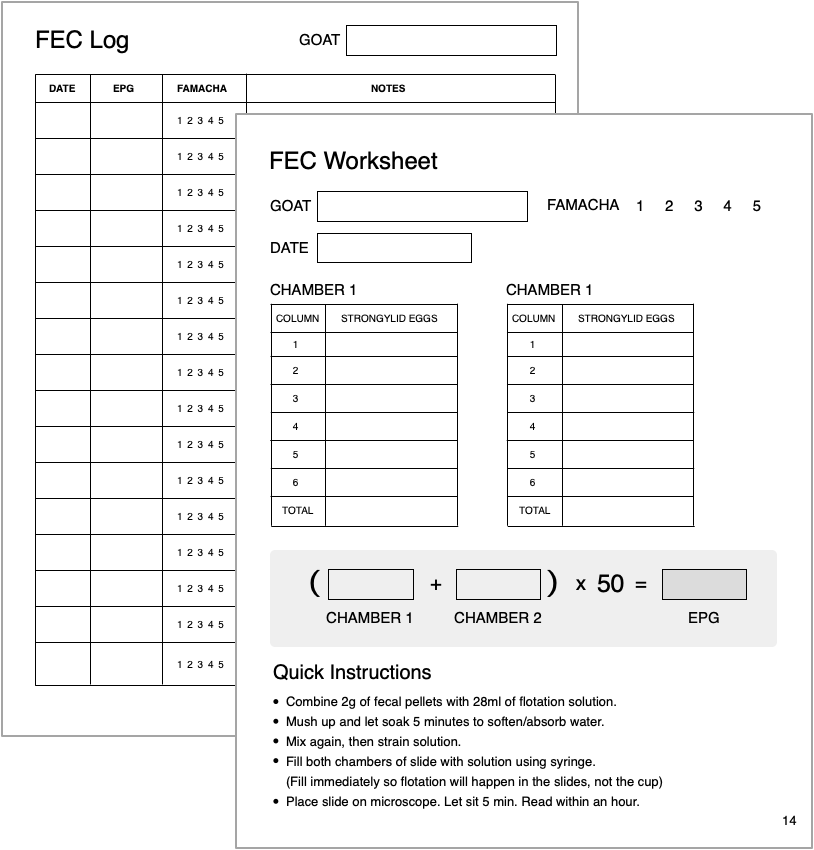

The above video and the accompanying PDF (available below) covers the procedures for doing at home fecal egg counts (FEC) for goats and sheep using the McMaster flotation technique.
Performing a fecal egg count might sound technical, but it’s an invaluable tool for keeping your goats or sheep healthy. This simple process involves taking a small poop sample, examining it under a microscope, and counting the parasite eggs to get a sense of your animal’s parasite load. It helps you decide when (or if) to deworm and ensures the medication you’re using is working effectively.
In this easy-to-follow guide, I’ll walk you through everything you need to perform fecal egg counts at home using the McMaster flotation technique. You’ll learn:
We’ll also dive into how fecal egg counts, combined with Famacha anemia testing, can help you make informed decisions about deworming and parasite management.
To make it even easier, this guide includes printable worksheets to help you calculate and track your results step by step. Whether you’re a first-timer or looking to fine-tune your skills, this guide will equip you to take charge of your animals’ health with confidence.

The PDF guide covers all the details presented in the video including the following:
Also included: Printable worksheets to simplify testing
